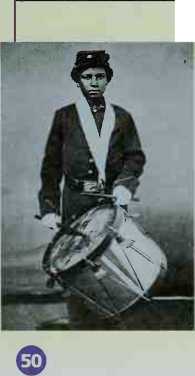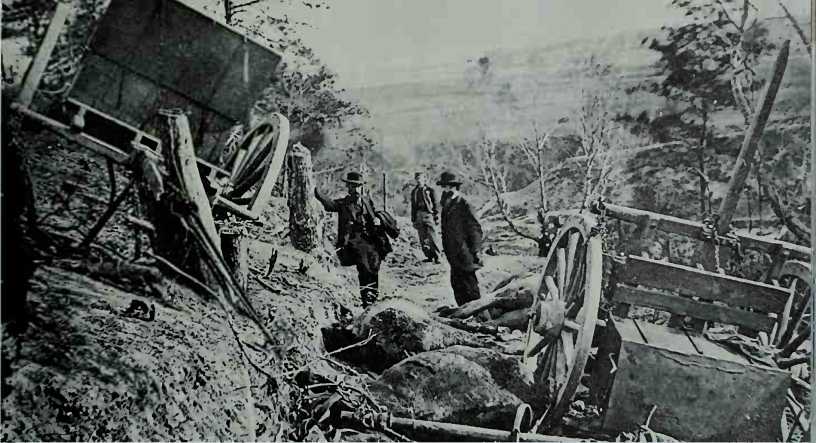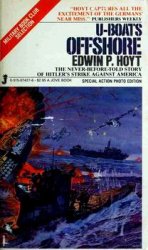In the aftermath of Antietam, Lincoln had issued the Emancipation Proclamation. The fight to rid the land of slavery was now linked with the North's resolve to save the Union.
Pursuing Lee. McClellan had forced the Confederates back to Virginia, but to end the war, Lee's army had to be destroyed. McClellan did not have the heart for the kill. He had shaped and polished his great Army of the Potomac and could not bear to risk it. Lincoln gave the job of finishing Lee to Ambrose Burnside, one of McClellan’s subordinates.
The Confederate general had dug in on the hills over Fredericksburg on the road to Richmond. Burnside would have to come to him. From behind a stone wall at the base of Marye’s Heights, four lines of Rebel infantry waited for the Union attack. Their guns were sited to fire over their heads and sweep the plain in front of them.
A cannoneer told Lee, "General, a chicken could not live in that field when we open on it.”
Marye’s Heights. After crossing the river into Fredericksburg, Burnside attacked on the dank, cold morning of December 13, 1862. He sent his troops into the grinder of Lee’s defenses, despite warnings from his fellow generals. The result was a long day of needless slaughter. A Union officer watched brigade after brigade take their turn against the Confederate storm of iron. The lines seemed to melt, he said later, "like snow coming down on warm ground.”
The Confederates beat back fourteen separate charges, shooting down 12,700 Union men with bloody ease. No Union soldier got closer than twenty-five yards to that fatal stone wall. That night, many wounded froze to death in the bitter December wind.
Turning to Hooker. Lincoln despaired of finding a good commander. After the Fredericksburg disaster and another failed march in January, he replaced Burnside with General Joseph Hooker. "Fighting Joe,” at least, had an aggressive streak. Right away he got the men fresh food, fixed up their camps, and restored the army’s spirit. In late April 1863, he set off to outfox Lee.
Hooker meant to force Lee out of his strong position at Fredericksburg, catch the Rebels in open country, and crush them. In all, it was a good strategy.
The Union general jumped most of his army across the Rappahannock upstream of Lee’s defenses. The Yankees got well behind the Confederates before Lee knew what was happening.
The Union soldiers were jubilant—their commander had Lee reacting to their movements. But just as the Yankees began to pick their way out from the tangled, scrubby growth. Hooker panicked, ordering his men onto the defensive.
Splitting the Army. The day that held so much
Promise for Hooker now gave Lee the opportunity to

Even during the second year of the war, the North was still fighting for, and only for, the restoration of the Union. Doing away with slavery was not the objective. Lincoln, though firmly against slavery, refused to free the slaves themselves. He was too afraid of driving the border states into the Confederacy. If that happened, many Union soldiers might quit the ranks, and the war would be lost. Another reality was that the slaves were beyond Lincoln’s reach. He really couldn’t “free them” until Confederate forces were driven from the field.
Still, many in the North urged the president to strike at the heart of the rebellion. Freedom for the slaves— emancipation—would strike at the Confederate economy and win support for the Union overseas. Gradually,
Lincoln decided he would act to free those slaves held captive in the rebellious states, gutting the Confederate economy. By treeing slaves only in the Rebel states, he kept slave owners in the border states loyal.
Lincoln didn't want his act to seem one of military desperation. He decided to wait until the Union had a real victory on the battlefield. Lincoln got his “victory” at Antietam. With Lee driven from Union soil, the president acted. On September 22, just five days after the battle, the president ordered that, as of January 1,1863:
“.. .all persons held as slaves within any State or designated part of a State, the people whereof shall then be In rebellion against the United States, shall be then, thenceforth, and forever free.... ”

A Confederate caisson, victim of a Union shell at Fredericksburg, Virginia. The Rebels would soon turn the tables.
Craft his greatest victor'. On the first night of May 1863, Lee and Stonewall Jackson sat on a pair of cracker boxes beside a small fire and plotted a daring attack. Lee would take a gamble and split his army. The next morning Jackson set off with 25,000 men. His aim was to pounce on Hookers right flank. Lee was betting that he could hold off Hookers 70,000 troops with the 15,000 Rebel soldiers he had left.
“...all persons held as slaves...shall be then, thenceforth, and forever free. ”
—Emancipation Proclamation
As the sunlight faded on the evening of the following day, German immigrant recruits, part of Hooker’s infantry, were cooking their supper. Suddenly deer and small game came bounding from the tangled wood to the west. Bugles blared, then hordes of Rebel infantiy rolled out of the forest.
Jackson's attack sent the Yankees tumbling back more than two miles. Only darkness and some stubborn men in Union blue, scratching together a defense, finally halted the Confederate advance.
Under a full May moon, Jackson tried to organize his now scattered troops for a night attack. He was riding in front of his own lines when Confederate infantry' mistook him for a Yankee. Gun blasts spat into the darkness, and Jackson and two of his staff fell. His aides were dead on the ground; Jackson was alive, but his left arm was shattered. Surgeons amputated it the next morning.
Battle on Fire. Hooker was now completely on the defensive. So Lee reunited the two wings of his army and stiTjck hard. The fierce fighting in the Wilderness set diy leaves and underbmsh on fire, choking the battle lines with smoke. The wounded were burning alive in the msh of flames. One wounded Union soldier remembered the horror of it: “We were trying to rescue a young fellow in gray. The fire was all around him. The last I saw of that fellow was his face.... His eyes were big and blue, and his hair like raw silk surrounded by a wreath of fire.”
When General Hooker finally pulled his battered army back across the Rappahannock on May 6, he had lost 17,000 men. Lincoln was crushed by the news of the defeat. "My God,” the president grieved, “what will the countiy say?"
Lee had lost fewer—13,000 men, but that was a quarter of his army The Confederacy though, was crushed with grief. Stonewall Jackson died on May 10 of pneumonia brought on by his wound. The Confederacy would soon miss his battlefield skills dearly.




 World History
World History









